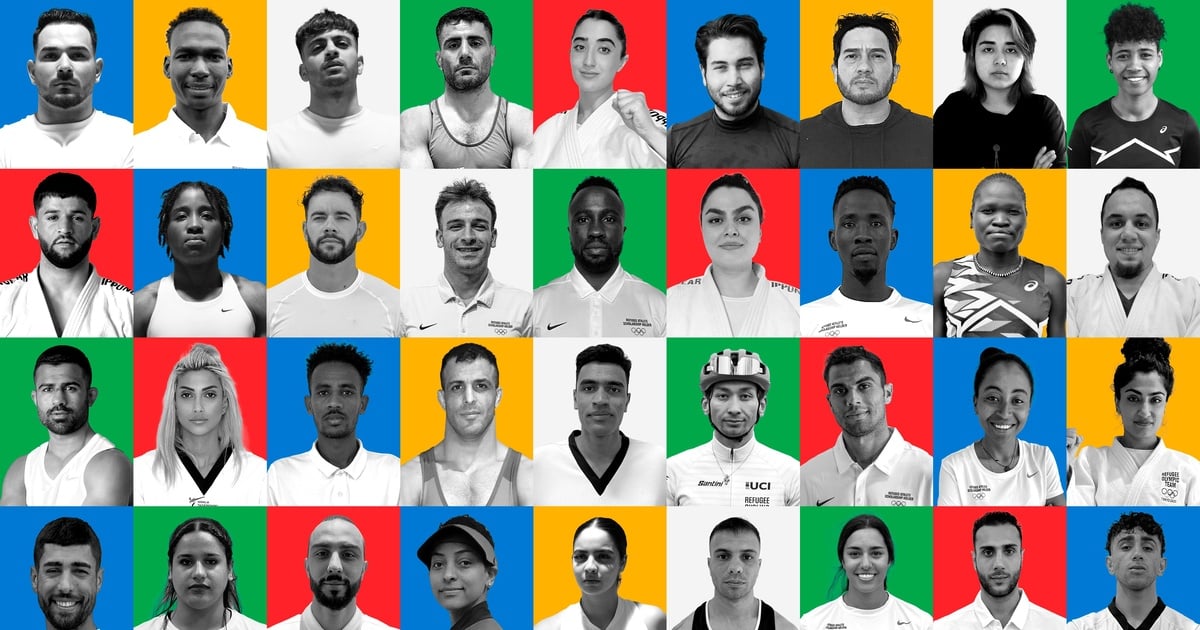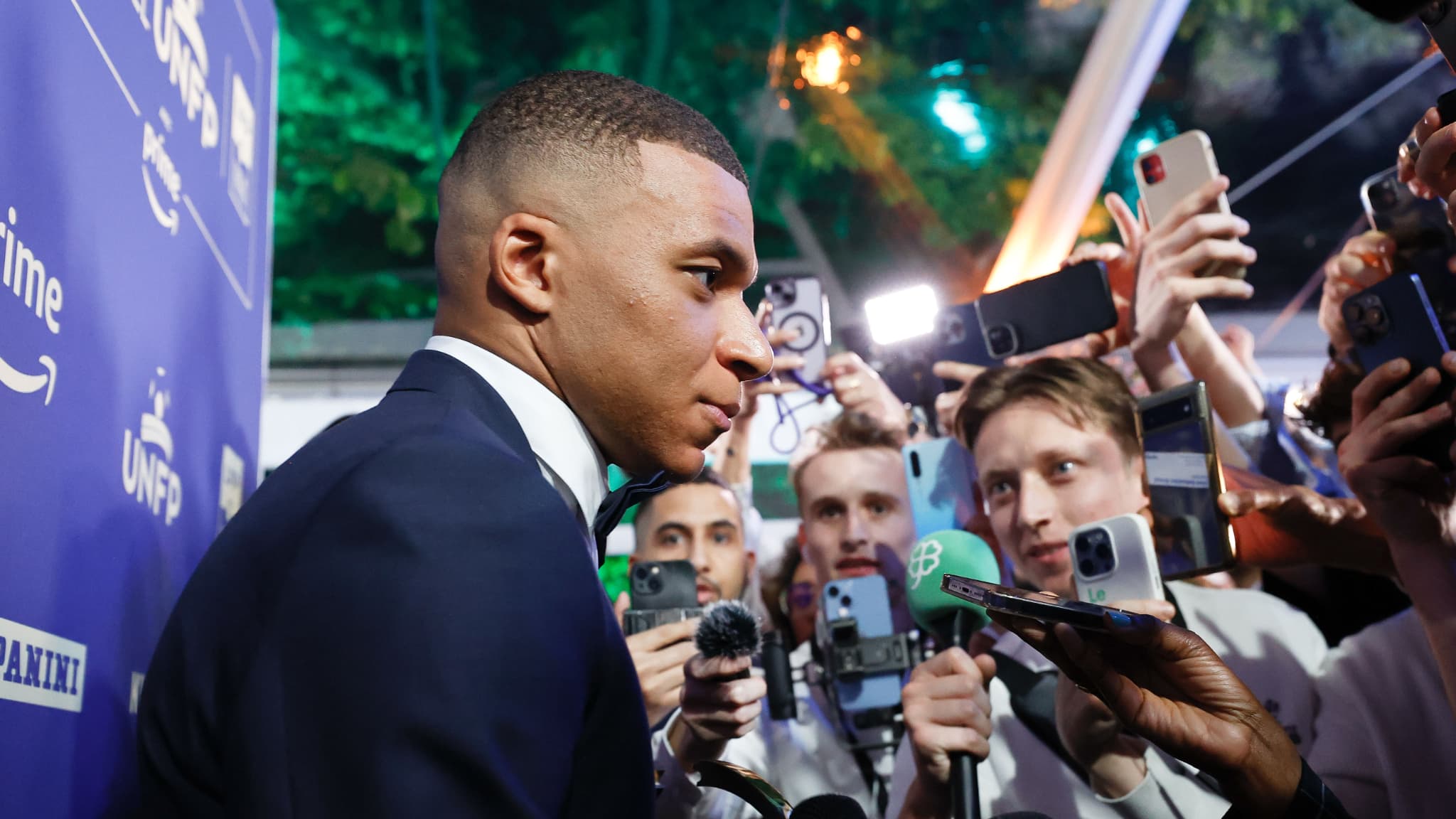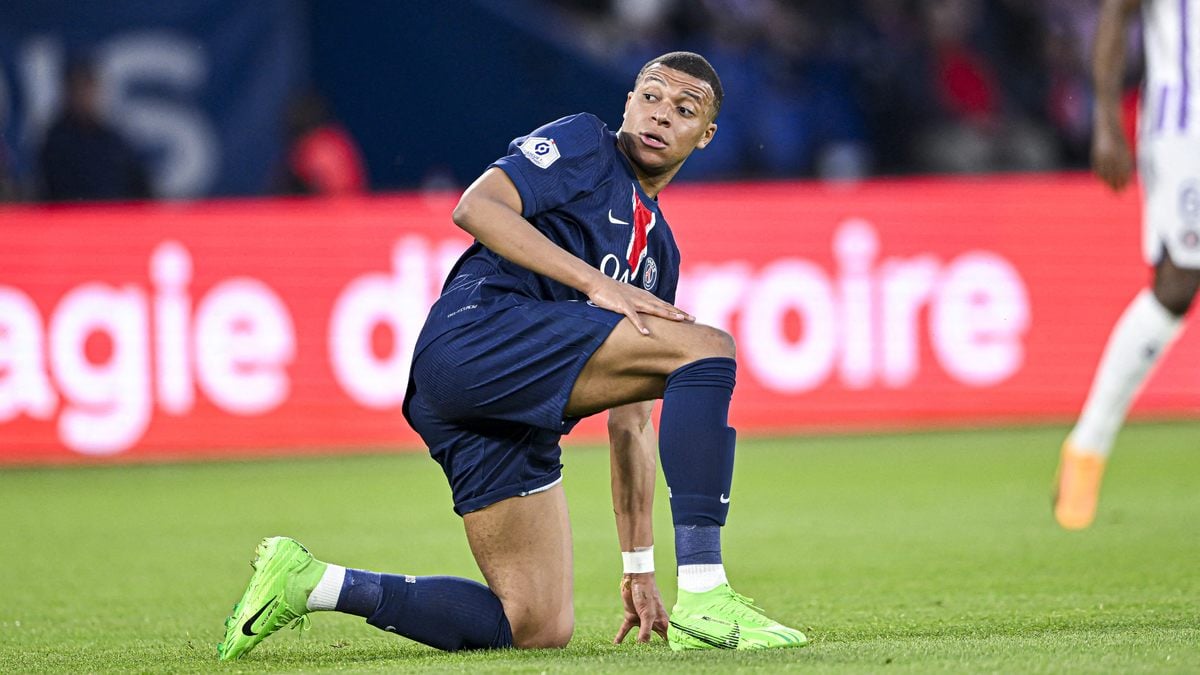Thirty-six athletes from 11 different countries, hosted by 15 National Olympic Committees and competing in 12 sports, were today named as members of the IOC Refugee Olympic Team for the Paris 2024 Olympic Games. The announcement was made by the President of the International Olympic Committee (IOC) Thomas Bach during a ceremony broadcast live from the Olympic House in Lausanne, Switzerland. Present at the Olympic Games for the third time, the Refugee Olympic Team will represent millions of displaced people around the world.
According to UNHCR, the number of forcibly displaced people worldwide was around 114 million as of September 2023.
“We welcome you all with open arms. You are an asset to the Olympic community and to our communities. By participating in the Olympic Games, you will demonstrate the human qualities of resilience and excellence. You will thus send a message of hope to the more than 100 million displaced people around the world. At the same time, you will raise awareness among billions of people around the world about the scale of the refugee crisis. That’s why I encourage everyone, everywhere, to join us and cheer on you, the IOC Refugee Olympic Team.”declared IOC President Thomas Bach during his speech to all members of the team, who participated virtually in the meeting.
The composition of the team was approved by the IOC Executive Board and is based on a number of criteria, including, firstly, the sporting performance of each athlete and their refugee status as confirmed by UNHCR, the United Nations Refugee Agency. Beyond these criteria, the team aims to be representative of the more than 100 million people displaced around the world. A balanced representation of sports and gender was taken into account, as well as the origin of the athletes. See the full list of athletes.
Refugee Olympic Team Chef de Mission Masomah Ali Zada, who competed for the Refugee Olympic Team at Tokyo 2020 and was present at the ceremony today, welcomed the athletes: “You all had a dream and today your dream of participating in the Olympic Games is closer than ever. After facing so many challenges throughout your life, you now have the opportunity to serve as a role model for a new generation, to represent something bigger than yourself, and to show the world what refugees are capable of. »
“I want to tell you that Paris will be a special moment for you in your journey, take advantage of it. I look forward to working with you all to make this experience unforgettable.”she added.
The vast majority of athletes were selected from among refugee athletes supported by the IOC as part of the Scholarship Program for Refugee Athletes, funded by the IOC Olympic Solidarity Program and administered by the Olympic Foundation for Refugees.
The UN High Commissioner for Refugees, Filippo Grandi, said: “The Refugee Olympic Team is here to remind us of the resilience, courage and hope of those who have been uprooted by war and persecution. These athletes represent what humans are capable of, even in the face of extreme adversity. These athletes also remind us that sport can be a reconstructive factor for people whose lives have been turned upside down by often tragic events. This restorative function concerns not only Olympic athletes, but everyone. Sport can provide a moment of respite, an escape from daily worries, a source of solace, a moment of pleasure. It can allow individuals to rebuild themselves both physically and mentally, and to reintegrate into a community. »
An emblem for millions of forcibly displaced people
For the first time ever, the Refugee Olympic team will compete under its own crest – a unifying symbol that brings together athletes from all backgrounds and gives the team a unique identity.
Each team member comes from different parts of the world and is an individual with their own story. Like the millions of people they represent, they also have a common experience, namely the journey through exile. This is what the emblem aims to express through its arrow-shaped design.
At the center of this emblem is a heart, inspired by the logo of the Olympic Foundation for Refugees, representing the sense of belonging that the team aims to promote and that athletes and displaced people around the world have found through sport.
“This emblem brings us all together. We are all united by our experiences. Although we are all different, we have had a similar journey to get to where we are. The athletes do not represent a specific country, but the Refugee Olympic team. Having our own badge reinforces the sense of belonging and allows us to represent the more than 100 million people who share the same experience as us. I can’t wait to wear it proudly!”Masomah Ali Zada added.
From the Olympic Games to supporting displaced people
Support for refugees and forcibly displaced populations is a key priority for the IOC, and is included in recommendation 11 of the Olympic Agenda 2020+5. The Olympic Refugee Foundation was established in 2017 to fulfill this commitment. The Foundation fulfills the functions of a traditional National Olympic Committee, supporting athletes with refugee scholarships and the IOC Refugee Olympic Team for the Paris 2024 Olympic Games.
In addition to supporting athletes in their participation in the Olympic Games, the foundation strives to enable displaced people around the world to access sports in complete safety. Through its partnerships or programs around the world, the foundation aims to build a world where displaced people can enjoy the benefits of sport, wherever they are, and where sport can be promoted at all levels as a means of helping refugees.
Since its creation in 2017, the work of the foundation has made it possible for almost 400,000 young people to practice a sporting activity in complete safety. More than 1,600 trainers have been trained and the programs have supported young people in 11 countries on five continents.
Follow their journey on social media
It is possible to follow the preparations for the 36 athletes who will participate in the Olympic Games in Paris 2024 on social networks:




